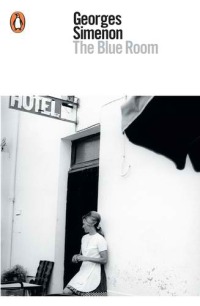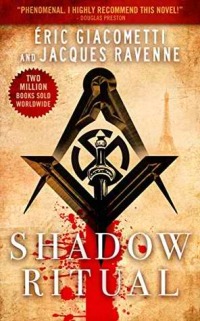The Age of Reinvention by Karine Tuil
 Friday, January 22, 2016 at 7:15AM
Friday, January 22, 2016 at 7:15AM 
Published in France in 2013; published in translation by Atria Books on December 1, 2015
The Age of Reinvention is a novel of breadth and substance, marred by its failure to tell and resolve a convincing story. It focuses on the lives of two characters. One is driven by ambition. The other has little drive to realize his modest ambitions. In ironic ways, their lives follow opposing arcs -- one rises while the other falls, then falls while the other rises. From this they learn lessons about life. The lessons are true enough even if the story seems false.
Samuel Baron and Samir Tahar meet in law school in Paris during the mid-1980s. Baron is the abandoned son of Polish parents who was adopted by a French couple. Tahar is the charismatic son of Tunisian immigrants. Baron drops out of law school to become an underpaid social worker and an unpublished novelist. Despite his self-esteem issues, he manages to marry a beautiful woman named Nina.
Tahar, on the other hand, has opened the New York office of a French law firm and has become a highly successful celebrity lawyer. He has also married a beautiful woman named Ruth, the daughter of a wealthy Jewish client of his firm. To make this life possible, Tahar reinvented himself, fabricating a history that parallels Baron’s. Part of the deception involves the pretense of being Jewish because (he fears) confessing to his Muslim origins would bar his chance of employment in the Parisian legal community.
All of that happens early in the novel, before the central story begins. As the title implies, reinvention is one of the novel’s themes. In Tahar’s case, it is reinvention by deceit. The way people justify deceit and the pain they cause by being deceitful is a related theme.
Tahar and Baron are each pathetic in their own way, Baron because of his inability to deal with his failures, Tahar because of his inability to handle his success responsibly. They are both made pathetic by their shared love of Nina. The second part of the novel is devoted to that dynamic.
Yet Tahar is a virtuous character when compared to his half-brother. Karine Tuil uses the contrast to give depth to Tahar and to make him a little more likable, or at least a little less despicable. Like real people, all of the characters in The Age of Reinvention are a shifting mix of good and bad qualities. None are admirable. Still, as each character, at regular intervals, howls in pain, it is easy to sympathize with them. While all the characters might be a bit too tragically flawed, they are at least more interesting than the flawlessly virtuous characters that populate so many novels.
While The Age of Reinvention is well written, some of it reads like a well-written soap opera. An expository chapter about Samir’s half-brother follows a well-worn path. Women are almost secondary characters in the novel, yet in some ways -- not necessarily convincing ways, particularly with regard to Nina -- the story is about the liberation of women.
The Age of Reinvention is thought-provoking. Interesting discussions of identity politics and identity-paranoia are among its highlights. While I appreciated the novel on an intellectual level, it didn’t grab me on a gut level. I didn’t buy into the plot, which relies on a chain of unlikely events. The most unlikely is portrayal of Tahar as a highly compensated, New York “celebrity lawyer,” given that he handles the kinds of cases that rarely generate fees or make headlines. Perhaps I would have discounted my skepticism if the novel had drawn me into the characters’ lives, but they are too self-absorbed to care much about.
Footnotes in novels are usually an annoying distraction. That was my reaction to the footnotes in The Age of Reinvention, most of which provide an unnecessary sentence describing something about the lives of background characters who make a single appearance. I suppose I get the point -- even people in the background of our lives are important -- but I could have lived without the footnotes.
High quality prose makes the story an engaging read. Despite its melodramatic moments and unconvincing nature, it is nearly always interesting and the final chapter conveys a worthy message. For those reasons, I recommend the novel, but not with enthusiasm.
RECOMMENDED WITH RESERVATIONS
 TChris |
TChris |  Post a Comment |
Post a Comment |  France,
France,  Karine Tuil in
Karine Tuil in  General Fiction
General Fiction 


